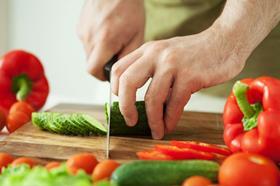
At this week’s Fruit Logistica exhibition in Berlin, Bayer is highlighting the products that address the biggest challenges facing today’s growers, including the ToBRFV virus, the growing demand for organic and low-residue produce, and the need to reduce the impact of farming on the environment and tackle climate change.
“There has never been a more challenging time in our industry,” said Inci Dannenberg, president of Global Vegetable Seeds at Bayer’s Crop Science Division. “We are working to combat climate change and limited natural resources while striving to feed a growing population with diverse nutritional needs. We’re looking forward to having an opportunity to hear from growers about what they need to be successful and share with them our latest offerings.”
According to the company, an important focus is on giving growers what they need to deliver on consumer, regulatory and ecological demands.
Bayer is also showcasing progress updates on its Food Chain Partnerships and its BayGAP Service programme, which aims to empower smallholders to grow better crops and increase yields, for a profit.
In 2021, Bayer introduced an expansion of products under the new Vegetables by Bayer umbrella to offer organically produced seed. This directly addresses the increased customer need for high-quality organic seed, the company said.
Bayer revealed that its efforts to offer tailored solutions in seeds and in conventional and biological crop protection were being facilitated by new digital tools to help “sustainably produce high-quality, high-yielding crops for consumers worldwide”.
“The combination of synthetic and biological crop protection products, together with digital tools, is leading horticulture towards a path of regenerative agriculture,” said Kamel Beliazi, SVP Fruit and Vegetables Strategy at Bayer’s Crop Science Division. “We’re proud to showcase our tailored digital solutions for fruit and vegetable growers and to provide an outlook on what’s to come next in our pipeline of digital tools.”
Bayer is also introducing Biologicals by Bayer, it said, a new signet for all biological crop protection products. “Bayer’s science-based biological products provide growers with a broader choice for pest and disease management,” the group stated, “while contributing to Bayer’s goal of reducing the environmental impact of crop protection by 30 per cent by 2030.”
Bayer said it remained committed to forming Food Chain Partnerships and delivering service programmes such as BayGAP, assisting farmers in utilising the latest innovations and regenerative practices.
“This includes collaborations across the entire food value chain, connecting players and combining the knowledge and resources of private enterprises, public bodies, finance providers, technology firms and other stakeholders,” Bayer stated.
“BayGAP helps to deliver on-the-farm training, advice and certification support to connect growers to global markets. These efforts contribute to Bayer’s commitment of empowering 100m smallholder farmers in developing regions by improving access to agronomic knowledge, products, services and partnerships.”



